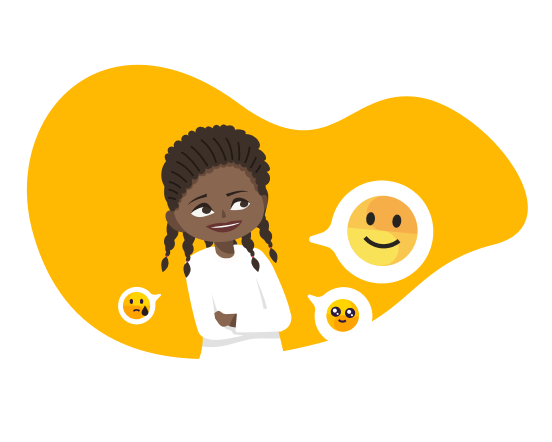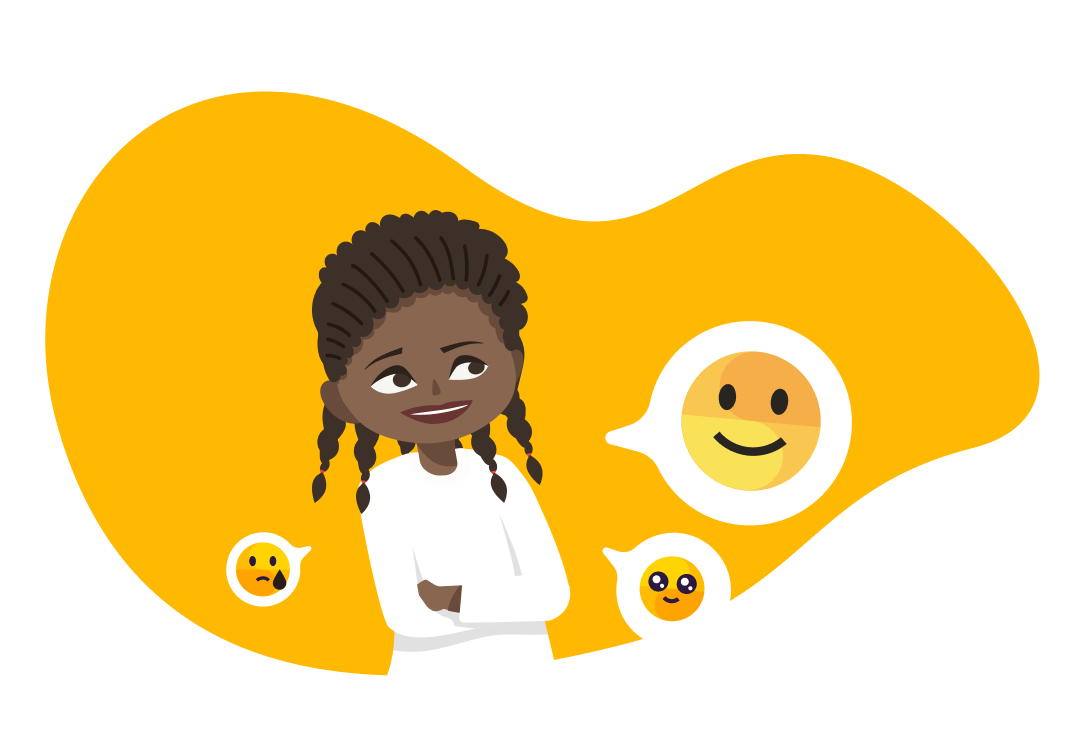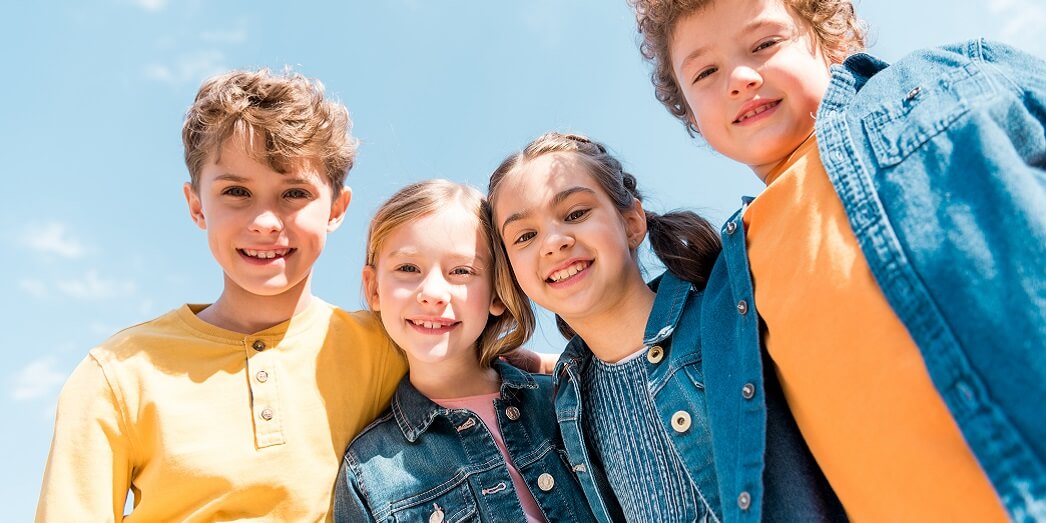
Social skills for children
Social competencies are one of the most important soft skills, either for kids or for adults. It is much more important than ABCs. Socializing gives a kid significant emotional and behavioral lessons that he will use for the whole life. Is it necessary to teach a kid social skills? How to check whether he has enough social skills? This toolkit answers these questions and gives you practical recommendations from psychologies.
What are social skills?
Social skills are a set of skills used for interaction. They include a set of verbal and non-verbal means of communication. They are speech, gestures, facial expressions, and body language. They enable an individual to have a positive experience of interaction with people around. Genetics and temper do not play an essential role in forming social skills. If your child does not have enough knowledge of how to communicate, you can fix it by making sustained efforts. Anyway, social skills demand ongoing refinement as a kid gets older.
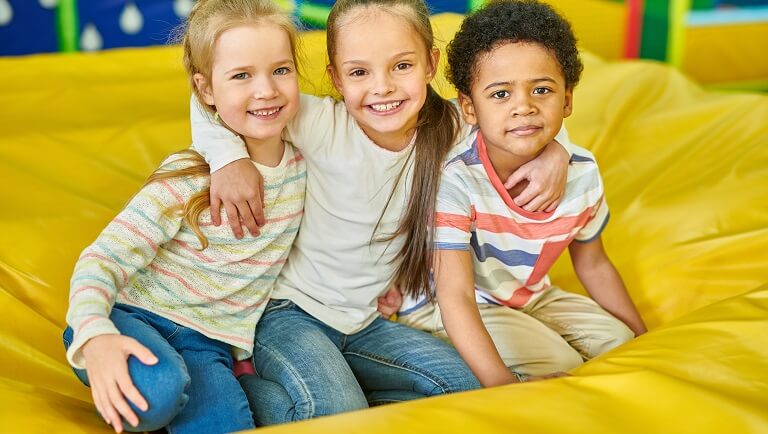
Examples of good social skills:
- Saying polite words;
- Asking permission;
- Following instruction;
- Respecting personal space bubble;
- Noticing at someone’s feeling;
- Helping friends;
- Respecting other points of view;
- Predicting sequences of one’s actions;
- Telling the truth;
- Waiting for your turn;
- Not interrupting.
Benefits of social skills for kids
- Immediate benefits. From an early age, kids with social skills gain immediate benefits. They enjoy peer relationships more quickly. They easily find a common language in communities. Finally, children who know how to communicate have less stress when they are away from family places.
- Long-term benefits. Kids are not only socially accepted but also more successful in both learning and future career. Researchers regularly find long-turning benefits of social skills. According to researchers from Penn State and Duke University, the kids who follow directions, cooperate, and are better at sharing more often go to college. This category of people is more likely to be employed by the age of 25. The study published in the American Journal of Public Health (2015) tells that robust social and emotional skills in kindergarten may be the predictor of success in adulthood.
- Living in peace with the inner and outer world. Besides, easy-going people are more likely to make friends. Friendship becomes one more source for sharpening such vital skills as conflict resolution and problem-solving. A child three years older begins forming cooperative skills that he will use in the far future as a professional and a family man. That is why the ability to cooperate is a general term for living in peace and harmony.
Takeaway. Does each person need social skills? The answer is obvious. Many social skills are crucial for living a happy and productive life. They can not become a miracle that frees a child from conflicts and disappointment in ordinary life. But they give efficient strategies of resolution to many issues. Just imagine a life without these skills. What if children ignore lines? What if they say everything that comes into their hand? What if they can’t protect themselves in socially accepted manners?
Reasons for difficulties in socializing
Social skills are a kind of soft skills that can help in life much more than school subjects. They enable us to interact constructively, how to manage conflict and navigate groups. We study all these skills at school and refine them for the whole life. Anxiety, depression, not enough positive role models make learning social skills difficult. By contrast, robust emotional intelligence makes specific social situations manageable. Emotional intelligence allows us to realize our own emotions and accept feelings in others.
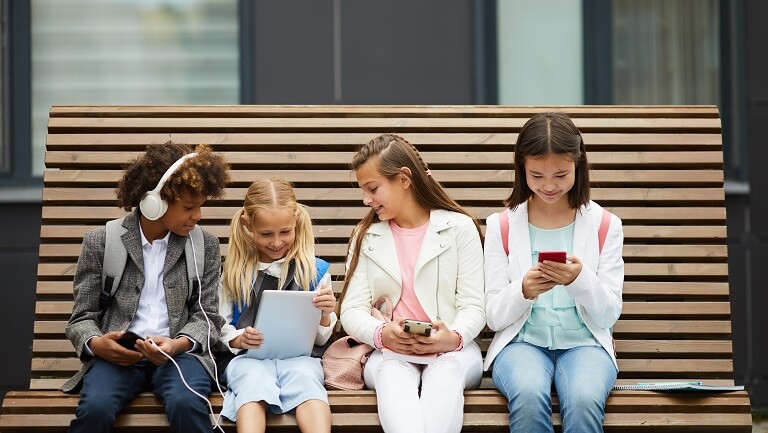
It is worth mentioning that children of different ages have different opportunities for socializing. Children from three to six years don’t like to share their toys and more often prefer playing alone. However, they are likely to achieve a common goal. From seven, they display more willingness to share and interact.
The essential basis of successful social skills is healthy behavioral and mental capabilities. There are the following building blocks of good social skills:
- Concentration and attention. This is the ability to focus on one activity without distraction. How does concentration help in dealings? Sustained engrossment helps a person in listening to others and working in a team as a vital participant.
- Receptive language. An individual is open and responsive to ideas, thoughts, and suggestions.
- Expressive language. It is the ability to utter through speech thoughts, feelings, and needs.
- Play skills. They mean self-motivated engagement in some playful activities associated with pleasure.
- Pre-language skills. They are non-verbal means of expressing our thoughts and feelings. These are facial expression, eye contact, gestures, and imitation.
- Self-regulation. It is the ability to control one’s emotions and level of activity and change them appropriately for a task or situation.
- Executive functioning. It includes logical reasoning and thinking skills.
- Planning and sequencing. It is the ability to make goals and achieve results step by step.
When a human has big troubles with getting along with the community, he may have some deeper problems with health. If a kid displays more difficulties in socializing than others, talk about it with the pediatrician. A lack of social skills may be a sign of different problems. Kids with autism and attention deficit hyperactivity disorder may be behind socially.
Examples of bad social skills:
- Eye contact is fleeting or fixed at one point;
- Avoiding using appropriate body language;
- Ignoring polite form of communication;
- Lack of skill to start or end massage;
- Interrupting others in conversation, inability to take turns;
- Not asking questions;
- Demonstration of no interest towards a talker;
- Not understanding sarcasm and irony;
- Literal interpretation;
- An unusual intonation and speed in speech;
- Disclosure of personal information to unfamiliar people or strangers;
- Failing in reading verbal and non-verbal cues;
- Inability to respond to aggression and teasing;
- Lack of capacity to adjust one’s language and activity appropriate to the situation;
- Lack of empathy, imagination, and sequencing.
Consequences of poor social skills
Poor social skills lead to not only difficulties with the community. Communication with peers and adults gives an indispensable practice and development of mental and behavioral skills. Lack of interaction can slow down skills of utmost importance, such as:
- Fluent speech and articulation, as we get more smoothness of sounds, words, and phrases when we are talking.
- Expressive language. The child suffers from the inability to be understandable in expressing his thoughts and emotions.
- Poor interpretation. It is difficult for him to focus on information and he has difficulties with its interpretation.
- Self-regulation. The child can not regulate his attention, emotion, and behavior in a socially accepted manner.
Difficulties with socializing generally lead to:
- Low self-esteem. Kids with poor knowledge of interaction often suffer from low self-esteem. As a result, they are more dependent on the people around them.
- Lack of play skills. A child doesn’t gain pleasure in games and cooperating due to the inability to communicate with peers. Therefore, he has low play skills and avoids games.
- Avoiding social activities. As a kid who has difficulties with the environment, he refuses to take part in social activities.
- The inability to adequate self-expression. It often leads to inappropriate behavior. For example, yelling to get someone’s attention.
- Difficulties in language comprehension. It becomes a reason for misinterpretation of verbal and written instructions and the inability to follow directions.
- High level of stress in unfamiliar situations. A kid can’t ask for help in a shop, asking for directions when he is lost. A kid with these properties sooner or later copes with failures. That leads to low live standards.
6 essential social skills for kids
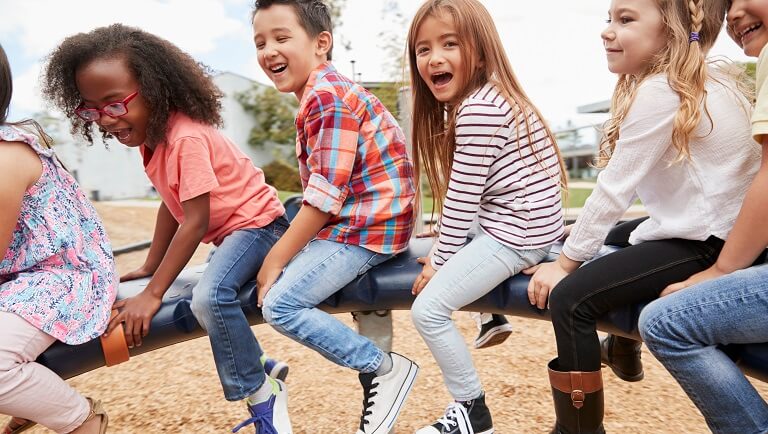
- Listening is an essential competence in a healthy interaction. This ability helps a kid to make friends and successfully learn school subjects. Growing up, an interested listener starts thinking critically and forms his own opinion on cases. That’s why it is important to create various social situations for strengthening this skill.
- Cooperating. This competence lets kids work in teams productively. They can follow directions, contribute and achieve goals. As a result, they are respectful and confident. Besides, work in a team allows kids to know themselves. Some of them prefer to follow directions; others like to take leadership positions.
- Following directions. This skill enables children to succeed in making various assignments, starting from homework and ending specific tasks at school and sports activities. Parents are the first people who make assignments for kids, and it is essential to make them clear and positive.
- Respecting personal space. Ignoring personal space will lead to various consequences. First of all, children will have difficulties in establishing interpersonal relationships. They can’t understand body language. Others avoid communication with such kids. Therefore, they are not socially accepted.
- Using manners. Children need to understand manners that we use in various social situations, such as in a restaurant or at a library. Polite children gain immediate benefits. They are respectful as they respect others. Besides, they are more confident as they know what to do in specific cases.
- Waiting and sharing. Developing patience is a necessary competence that makes life easier. Whether a kid needs to wait his turn to speak or stay in a line, he will cope with that on condition he has a waiting skill. Willingness and readiness to share will bring benefits to a kid through life. You can’t force a kid to share, but you can point at sharing when you see it.
6 ways to improve a kid’s social skills
- Find an interest group. Find a place where a kid meets like-minded peers. It can become perfect soil for the first steps in socializing. A kid will find it easier to interact with individuals who have the same interests. When he has built the necessary social skills, he will easier socialize with people of different interests.
- Encourage a kid to ask questions. Asking questions is the best way to form connections with others, especially in situations when conversation lags. Support a kid in asking questions and explain to him that questions must pertain to a person. The best questions are those that need open answers, but not just “yes” or “no”.
- Practice at home. You can use role-playing to teach younger and older children social skills. For example, you can pretend to be a person with difficulties in talking to peers. Discuss how he can get along well. Find with your kid effective ways of socializing. Talk about the significance of body language and eye contact.
- Teach empathy. Empathy is a critical component of healthy communication. That means to put yourself in someone’s shoes. This ability lets a child feel compassion for others and have intimate experience of interpersonal relationships. This ability will help a kid to make positive bonds and feel connected to others. Use teachable moments to feel empathy. Ask a kid about his feelings and the emotions of others. Suggest him to put himself in other people’s shoes and discuss what they feel.
- Understand your kid’s limits. Some children are shy; others are close talkers and outgoing. We shouldn’t expect that an introvert will feel comfortable in large settings. At the same time, it would be wrong to expect that an extravert will be satisfied to be in smaller groups. Besides, pay attention to the kid’s age. Little children and kids with special needs can socialize comfortably with one or two individuals.
- Be a good role model. Children always are watching their adults and taking lessons. Do you have refined social skills and show empathy? Do you ask questions and establish eye contact? Otherwise, expecting a kid to have good social skills is a waste of time.
Games and practical recommendations on developing social skills in kids
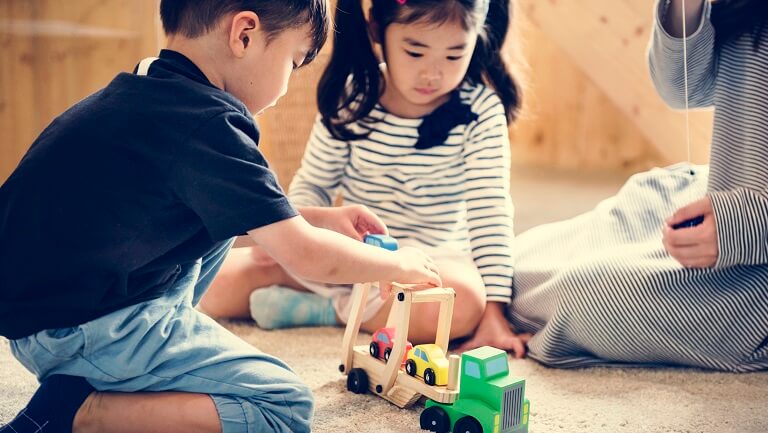
Make sure that you are well-versed in giving instructions. First of all, give a child one direction at a time. When he successfully finishes it, he is ready to make one more. Avoid questions when you talk about directions and ask to repeat them back. Finally, don’t forget that it’s normal for a kid to forget instructions and be a bit distracted.
Teach a kid not to cross a personal space bubble. Mention him to stay about an arm’s length away from people.
Make eye contact. Explain to a kid how important to look at a person’s eyes when they are speaking. Some kids are shy and stare at floors instead of making eye contact. In that case, gently, a kid looks at a person’s eyes during communication.
Teach cooperative skills at home. Create situations for cooperation at home and emphasize its importance.
Develop attentive listening while reading. When you read a book to your kid, stop sometimes and ask him to repeat it. When somebody is talking, don’t let a kid interrupt them.
Make a poster “Steps to the good conversation”. It will remind a kid of the importance of using a friendly voice, greeting, eye contact, and others.
Sing songs like “If you are happy and you know it”. It lets a child better understand different emotions.
Play turn-taking games. All board games can help to develop this skill.
Teach a kid a second language. Learning a foreign language is a good chance to build necessary social skills.
Best books for teaching a kid social skills
- Social Skills Activities for Kids by Natasha Daniels. The book consists of life lessons and activity games. It tells a kid how to start a conversation, use manners, and find compromises.
- Personal Space Camp by Julia Cook. This book teaches children to respect personal physical boundaries. It is a must-have for parents who want to talk about the personal space bubble with kids.
- Train Your Angry Dragon: A Cute Children Story To Teach Kids About Emotions and Anger Management. This funny and cute book tells about negative emotions and self-regulation.
- Key Education Social Skills Matter by Christine Schwab. This book for kids aged 4-8 years. It covers such topics as cooperative play, communication, manners, and behavior management.
- Growing Friendships: A Kids’ Guide to Making and Keeping Friends. This is a toolkit on how to make friends from psychologist and parenting writer Eileen Kennedy-Moore.
- Sharing a Shell by Julia Donaldson. It is a vivid exploration of sharing issues for toddlers.
- Horrible Bear! by Ame Dyckman. It is a funny book for kids 2-5 years old. It teaches young readers to control anger, say polite words and make friends.
- CHILL Like a Superhero, M-C Bailey-McKenna. This bright novel explains to a teenager how to meet challenges in everyday school life (11-14 years).
- In Love and In Danger: a Teen’s Guide to Breaking Free of Abusive Relationships by Barrie Levy. This book for those who come across abusive dating relationships (14+).
- Respect: a Girl’s Guide to Getting Respect & Dealing When Your Line is Crossed by Courtney Macavinta & Andrea Vander Pluym. The savvy novel allows girls to get respect and hold it in any case (14+).
Conclusion
It is hard to overestimate the significance of social skills. They allow us to live in harmony with the people around us, achieve our goals, become a part of communities. By socializing, children can develop specific mental properties and get a necessary social experience. That pushes their growth and makes them happier.
However, their path is full of obstacles. At least one time in their life, children come across difficulties in making friends. Without positive role models, kids may face with failures in socializing. That leads to low living standards. But we can help kids in socializing and this is good news. Through practice and assertive efforts, you and your child can reap immediate and long-term benefits.

new engaging articles


